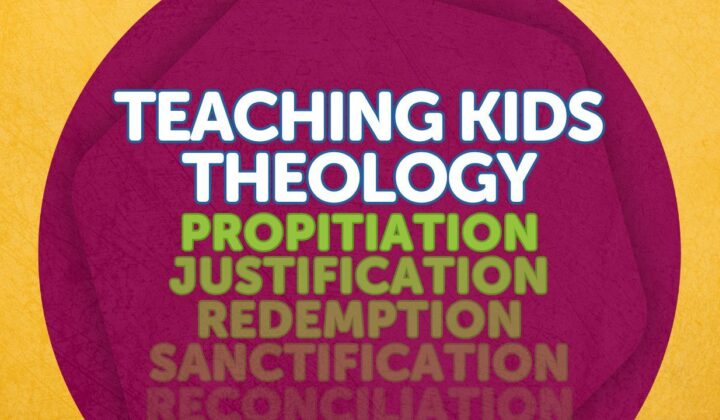Learn more about the journey that led to us equipping kids to carefully evaluate every idea they encounter.
Meet members of our team who have contributed to curriculum development.
Hear from real users of the Foundation Curriculum.
Learn what we believe about God, Jesus, Scripture, and more.
Choosing the Right Homeschool Curriculum as a Christian
Hello, friends! Today’s podcast question comes from a listener who asks:
“I've listened to a few of your podcasts about homeschool curriculum. There’s been advice on what not to use, but do you have any suggestions for high-quality homeschool education curriculums?”
This is a great question and one we receive frequently here at Foundation Worldview. If I’m being honest, I hesitated to record this episode. Even as I sit here, I feel a bit of a stomachache just thinking about the inevitable negative comments. Why? Because no matter what I say, some people will be upset.
For many, their homeschool curriculum is a deeply personal choice. It can feel like if someone questions their curriculum—even just a little—it’s as if you said their baby was ugly. That is not what I’m saying. Your children are image-bearers of God, and if you are faithfully homeschooling them, you are doing an incredible work.
If you are already set in your homeschool curriculum, please do not take anything in this podcast as a personal attack. I typically only do curriculum reviews when I believe there is something parents need to be warned about. I suspect that the listener asking this question is referring to a previous podcast episode where I reviewed The Good and the Beautiful curriculum and highlighted LDS teachings subtly woven throughout. That episode was meant to help Christian parents be discerning.
So today, we are flipping the question: If there are some curriculums we should avoid, what should we use?
That is what we will explore on today’s episode of the Foundation Worldview Podcast, where we seek to answer your questions so you can equip the children God has placed in your care to carefully evaluate every idea they encounter and understand the truth of the biblical worldview. I’m your host, Elizabeth Urbanowicz, and I’m thrilled you’re joining me for this discussion.
How Can We Wisely Approach Homeschool Curriculum?
Before jumping into specific curriculum recommendations, I think it is even more important to ask: How can we wisely approach any curriculum?
Homeschooling is a huge task. The blessing of being the primary disciple-maker of your child comes with a significant responsibility. Choosing the right curriculum can feel overwhelming. So instead of fixating on the “perfect” curriculum, let’s focus on four key strategies for making any homeschool curriculum work well for your family.
And before I go any further, let me say this upfront:
I do not officially endorse any one homeschool curriculum.
There is no curriculum I have found that truly teaches children to think critically from a biblical worldview.
I know this is a big claim, and some people may already be feeling defensive. If that is you, feel free to press pause and come back later. But if you are willing to hear my reasoning, let’s continue.
Why No Curriculum Gets It Fully Right
When I first started Foundation Worldview in 2018, it took several years for the company to become self-sustaining. To make ends meet, I tutored homeschool students in various subjects. One family I worked with asked me to select their curriculum for them.
That year, I attended multiple homeschool conferences and took time to carefully review every major homeschool curriculum available. I spoke with representatives from nearly every company. Almost all of them claimed to teach from a biblical worldview.
But when I asked what they meant by a biblical worldview, the answer was almost always the same:
“We teach science from a young-earth creationist perspective.”
Now, I know many families hold to young-earth creationism, and I am not saying that is a bad thing. But science is just one subject. A truly biblical worldview should shape every area of study.
So I asked, “How do you teach English Language Arts from a biblical worldview?”
The response?
Many curriculum reps showed me sentence diagramming exercises where students would analyze Bible verses or moral statements. Again, nothing wrong with this, but that is not teaching English through a biblical worldview.
A truly biblical view of language would start with:
- Why can we communicate?
- What makes humans unique in our ability to use language?
- How should we communicate as image-bearers of God?
Similarly, when I asked how math was taught from a biblical worldview, I was told, “We just emphasize doing math as unto the Lord.”
Yes, working with excellence is biblical, but that is not a biblical worldview of math. A truly biblical approach would explore:
- Why does math have order?
- Why are there constants in the universe?
- Why can humans recognize and apply mathematical principles?
At the end of my search, I selected BJU Press for the students I was tutoring. It had a decent level of academic rigor and fewer forced biblical integrations than others. But I had to supplement it heavily.
This brings me to my key point:
Do not put your hope in a curriculum.
There is no perfect homeschool curriculum—and that is okay. Instead, take a solid curriculum and make it work for your family.
Four Steps to Make Any Curriculum Work
Instead of seeking the perfect curriculum, I recommend focusing on these four strategies:
- Find a curriculum that fits your child and your family rhythms.
- What works for another family may not work for yours.
- Consider your teaching style and your child’s learning needs.
- Move through the curriculum at your child’s pace.
- If your child already understands a concept, do not force unnecessary review.
- If they struggle, slow down and review concepts as needed.
- Incorporate secular resources to develop critical thinking.
- Children need exposure to secular ideas so they can learn to evaluate them biblically.
- Consider using Scholastic News or the Foundation Worldview Book Club, which now features secular books with biblical worldview discussion guides.
- Ask biblical worldview questions in every subject.
- Help your child see how God’s truth applies to all learning.
- Example: In spelling, ask: Why do humans communicate with written words? (Answer: Because we are image-bearers of a God who communicates.)
Final Thoughts
To summarize, here are four steps to make the most of any homeschool curriculum:
- Find a curriculum that fits your child and family.
- Move at a pace that matches your child’s development.
- Include secular resources for critical thinking.
- Add biblical worldview questions to each subject.
If you take these four steps, you can make any homeschool curriculum work while training your child to think critically and biblically.
If you want additional resources, check out our Comparative Worldview Curriculum for ages 8 and up. This program helps kids recognize secular assumptions and evaluate them biblically.
That is a wrap for this episode. If you have a question for a future episode, visit FoundationWorldview.com/podcast to submit your question.
As always, my prayer is that no matter your situation, you would trust that God is working all things together for your good by using all things to conform you more into the image of His Son.
See you next time!
Related Posts and insights

Did God Force Jesus to Die on the Cross?
In this episode of the Foundation Worldview Podcast, host Elizabeth Urbanowicz tackles the question of whether God forced Jesus to die on the cross. She shares how to approach this question with children and emphasizes the importance of affirming their curiosity and directing them to Scripture for answers. This episode provides practical guidance for parents and caregivers on how to navigate theological questions with children.

Teaching Kids Theology
How do you explain big theological words like justification, sanctification, propitiation, redemption, and reconciliation to children in a way they can understand? In this episode of the Foundation Worldview Podcast, Elizabeth Urbanowicz walks through a simple three-step approach to teaching these complex concepts to kids of all ages. You'll learn how to create easy definitions, pair them with body movements, and provide key Bible verses to help children grasp these truths.

How To Teach Kids That The Resurrection Is Historically Reliable
More than doing creative activities about the resurrection story, kids wonder the same thing as adults - is the resurrection historically reliable?



